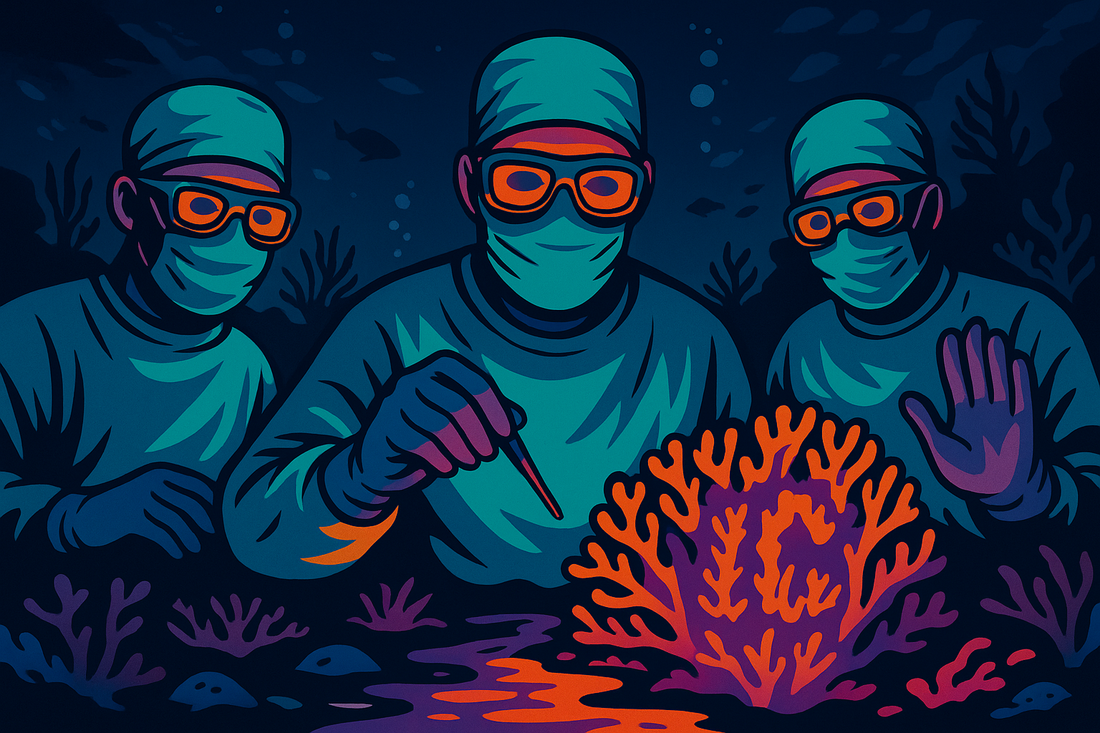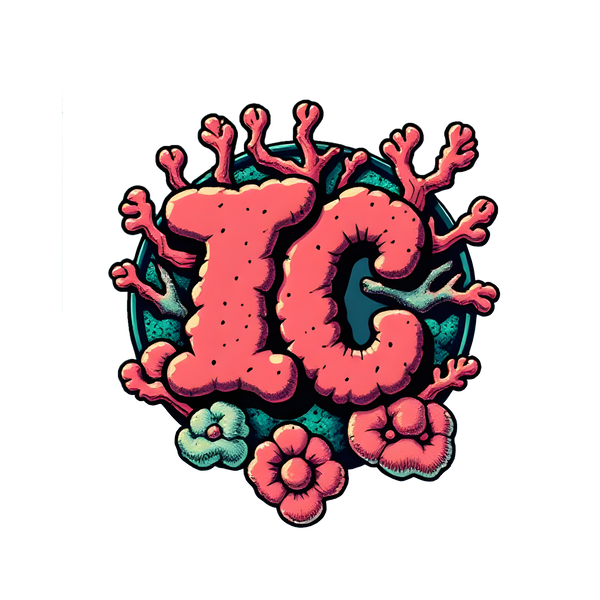
The Ocean’s Pharmacy Is Closing: What We Lose When Reefs Die
Share
“We’re not just losing coral. We’re losing the cure.”
— Immoral Coral
There’s Medicine in the Reef
We often talk about coral reefs as beautiful ecosystems, biodiversity hotspots, and vacation backdrops. But we rarely talk about them as what they really are: one of the most valuable, untapped pharmacies on Earth.
Hidden within the tissues of reef-dwelling creatures are chemical compounds that could—and already have—changed medicine forever. Cancer treatments. Painkillers. Antivirals. Antibiotics. Anti-inflammatory agents. Neuroprotective molecules. All discovered by studying life beneath the waves.
But there’s a problem. That life is vanishing.
Coral reefs are bleaching, dying, and collapsing. And with every lost polyp, we’re not just watching color drain from the ocean—we’re watching the future of medicine go with it.
From Coral to Cure
Some of the most powerful medicines we have didn’t come from a lab—they came from the sea.
Take Ara-C, also known as cytarabine. This chemotherapy drug revolutionized leukemia treatment and it traces back to a Caribbean sponge. Scientists discovered that the sponge produced a compound that could interfere with DNA replication—essential for stopping fast-growing cancer cells. Today, it's a cornerstone of cancer care, all thanks to an obscure reef organism.
Then there’s ziconotide, a non-opioid painkiller derived from the venom of the cone snail. This tiny, beautiful predator uses a cocktail of neurotoxins to paralyze its prey—and researchers found that one of those toxins could block pain signals in human nerves with extreme precision. It’s 1,000 times stronger than morphine, but without the addictive side effects. A reef-dweller gave us that, not a pharmaceutical company.
Trabectedin, an anti-cancer compound now used in chemotherapy, was first extracted from a squishy, coral-associated creature called a sea squirt. It works by attacking tumor DNA in a way no other drug does. The same goes for discodermolide, pulled from deep-sea sponges, with potential to treat cancers that resist other therapies.
Even neurodegenerative diseases like Alzheimer’s have hope on the reef. Bryostatins, found in tiny reef creatures called bryozoans, are showing promise in early studies for boosting memory and rebuilding damaged neural pathways. That’s not just medicine—it’s possibility.
And the scariest part? These are just the stories we know. Less than 10% of marine life has been screened for pharmaceutical potential. With every bleaching event, every reef collapse, we risk losing a cure we never knew existed.
The Clock Is Ticking
The reef doesn’t just sit there looking pretty—it works overtime to shelter marine life, many of which produce these medical miracles as part of their defense mechanisms. But when reefs bleach or die, the animals leave, populations collapse, and entire biochemical chains are broken.
This isn’t just about potential. It’s about prevention.
Reef loss isn’t theoretical. It’s happening. And the longer we wait to protect what’s left, the more likely we are to miss out on:
-
The next major antibiotic in a post-penicillin world
-
A non-addictive painkiller that doesn’t fuel an opioid crisis
-
Breakthrough treatments for Parkinson’s, Alzheimer’s, or even COVID mutations
-
Low-cost solutions to disease for developing nations
We’re burning the library before we’ve even read the first few pages.
What You Can Do (Besides Panic)
We don’t make pharmaceuticals at Immoral Coral. But we do believe in preservation as protest. And we design with the future in mind.
-
Every shirt made from recycled plastic = fewer bottles in the reef
-
Every reef-aware voice wearing our message = pressure on polluters
-
Every purchase = fuel for education, awareness, and rebellion
Because the reef doesn’t just need scientists.
It needs defenders, storytellers, and people who care.
The next time you hear someone shrug off coral bleaching, remind them:
That reef could’ve held the cure for their cancer.
That sea slug might’ve contained the next breakthrough in brain science.
And if we keep ignoring it, we’ll never know.
